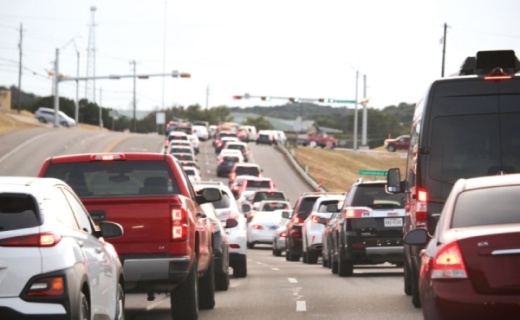The findings
The first, published by the city of Austin on Jan. 30, analyzed Austin Police Department racial profiling data collected between 2015 and 2018.
One finding is that black residents—who make up 8% of the Austin population—accounted for 15% of motor vehicle stops and 25% of arrests in 2018.
APD classifies motor vehicle stops based on whether the race of the driver was known to the officer prior to the stop.
That same year, black residents were overrepresented compared to their share of the population in motor vehicle stops both when their race was known and unknown to the officer, according to the report.
Additionally, the report found that between 2015 and 2018 black and Hispanic or Latino residents were “increasingly overrepresented in motor vehicle stops” while white residents were “increasingly underrepresented."
“This should be the study to end all studies,” Austin Justice Coalition founder Chas Moore said in a statement. “It uses APD’s own data. We now 100% know that there is a racial bias problem in policing[.]”
The second report, which will be published on Feb. 18, is a review of 2,900 drug possession arrests in Travis County from June 2017 to May 2018.
It was conducted by the Texas Criminal Justice Coalition, the Texas Harm Reduction Alliance, Grassroots Leadership and the UT Law Civil Rights Clinic.
The arrests were all for possession of less than 1 gram of an illegal substance.
While black residents made up 8.9% of the county population during that period, they represented 29.4% of the drug possession arrests, according to a Feb. 4 news release announcing key report findings.
Nearly half of the arrests studied arose from motor vehicle stops, per the release.
“Our findings amplify concerns raised in a recent report from the City of Austin, which found a disproportionate number of motor vehicle stops and searches targeting Black and Latinx populations in Austin,” the researchers wrote.
The recommendations
Both reports recommend a series of changes.
In response to the motor vehicle stop data analysis, the city’s police oversight, equity and innovation offices recommend acknowledging that “racial disparity exists and is worsening” in Austin and that steps should be taken to eliminate racial disparities in motor vehicle stops—as well as arrests, searches, field observations, warning and citations—by 2023.
“This report opens the door for us to have the real critical and courageous conversation about how racism plays out in policing and the fair administration of justice in our city,” Chief Equity Officer Brion Oaks said in a statement. “Our vision is to make Austin the most livable city in the nation and we can’t accomplish that vision if the color of one’s skin continues to be a predictor of if you get stopped, searched, or arrested in our city.”
The researchers behind the drug possession report recommended a reduction in the use of motor vehicle stops as the primary means of drug enforcement, as well as a broader strategy to address substance use without relying on punitive policing and criminalization.
“Typical War on Drugs enforcement, especially for low-level possession, is a net negative for the community,” said Doug Smith, senior policy analyst for the Texas Criminal Justice Coalition, in a statement. “Even short periods in jail result in the loss of jobs or housing, family separation, child welfare system involvement, and a host of long-term consequences that limit future opportunities.”
Other factors
The enforcement of low-level marijuana-related misdemeanors—namely possession of small amounts of the drug—recently changed in Austin.
On Jan. 23, City Council voted 9-0 to direct APD to stop enforcing marijuana-related misdemeanors. Additionally, council members voted not to spend city money or personnel resources on marijuana-related misdemeanors.
The vote followed the implementation of a new state law that legalized industrial hemp, which, like marijuana, is a byproduct of the cannabis plant and contains small amounts of tetrahydrocannabinol, or THC, the psychoactive chemical in marijuana.
Hemp and marijuana are only distinguishable by THC levels, and area law enforcement agencies—including APD, the Travis County Sheriff’s Office and the Texas Department of Public Safety—do not yet have the equipment and trained personnel necessary to test for THC concentration.
As a result, the district and county attorneys said last year they would not prosecute marijuana-related misdemeanors unless there was an accompanying lab report confirming illegal levels of THC.
In response, the Travis County Sheriff’s Office announced it would no longer cite or arrest people for marijuana-related misdemeanors. APD continued to cite and arrest people and was pursuing the equipment and training necessary to provide lab testing.
Following the council directive, APD Chief Brian Manley said the department’s enforcement practices will not change.
City Manager Spencer Cronk is scheduled to recommend changes to APD protocols in May, at which point APD will look at its policies and practices, Manley said.
Additionally, in December, City Council directed Cronk to oversee two independent investigations into APD.
One will look into the department’s cultures and practices after an anonymous whistleblower alleged an an assistant chief regularly used racist and homophobic language.
The other will consider the police academy’s training practices; results are required by June 1.
A third investigation—which looks specifically at allegations about former Assistant Chief Justin Newsom’s use of racist language—began in November. Findings are expected this month.




